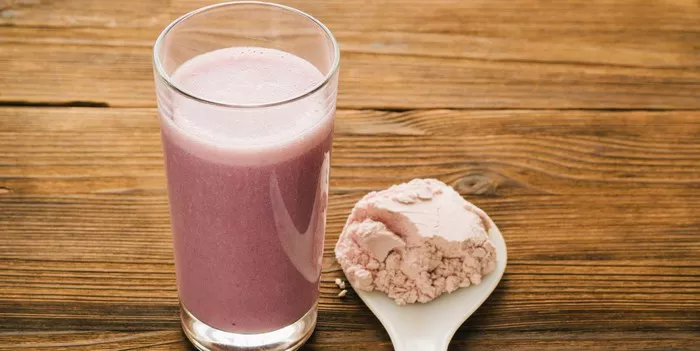Manic episodes are a defining characteristic of bipolar disorder, a mental health condition characterized by extreme mood swings that include emotional highs (mania or hypomania) and lows (depression). During manic episodes, individuals experience a distinct period of abnormally and persistently elevated, expansive, or irritable mood, along with increased energy or activity. Other common symptoms include racing thoughts, impulsivity, distractibility, and a decreased need for sleep. These episodes can significantly impair functioning and may lead to risky behaviors or even psychosis if left untreated.
Biological Factors
Neurotransmitter Imbalance
The brain’s chemical messengers, neurotransmitters, play a crucial role in regulating mood. Dopamine, norepinephrine, and serotonin are neurotransmitters implicated in mood regulation. In bipolar disorder, there is evidence of dysregulation in these neurotransmitter systems, with elevated levels during manic episodes and depleted levels during depressive episodes. The exact mechanisms underlying these imbalances are complex and not yet fully understood.
Brain Structure and Function
Research suggests that abnormalities in certain brain regions may contribute to bipolar disorder. The amygdala, responsible for processing emotions, may be hyperactive during manic episodes, leading to heightened emotional responses. Conversely, the prefrontal cortex, involved in decision-making and impulse control, may exhibit decreased activity, contributing to impulsivity and poor judgment during mania. Additionally, alterations in the hippocampus, which plays a role in memory and emotional regulation, have been observed in individuals with bipolar disorder.
Genetic Predisposition
Bipolar disorder has a strong genetic component, with heritability estimates ranging from 60% to 80%. Family and twin studies have consistently demonstrated an increased risk of bipolar disorder among relatives of individuals with the condition. However, it is essential to recognize that genetics alone do not determine the development of bipolar disorder, and environmental factors also play a significant role in its onset and course.
Psychological Factors
Stressful Life Events
Stressful life events, such as trauma, loss, or major life changes, can act as triggers for manic episodes in susceptible individuals. These events can disrupt the delicate balance of neurotransmitters and hormones involved in mood regulation, leading to mood instability and increased vulnerability to manic symptoms. Additionally, chronic stress may contribute to the onset and progression of bipolar disorder by exerting prolonged effects on the brain’s stress response systems.
Cognitive Patterns
Distorted thinking patterns and negative self-beliefs, commonly observed in individuals with bipolar disorder, can exacerbate mood instability and contribute to the onset of manic episodes. Cognitive distortions, such as black-and-white thinking or catastrophizing, can fuel emotional highs and lows and impair judgment and decision-making during manic episodes. Cognitive-behavioral therapy (CBT) and other psychotherapeutic approaches aim to identify and challenge these maladaptive thought patterns to promote mood stability and symptom management.
Environmental Factors
Sleep Disruption
Sleep disruption, including sleep deprivation or irregular sleep patterns, is strongly associated with the onset of manic episodes in individuals with bipolar disorder. Sleep plays a critical role in mood regulation and cognitive functioning, and disturbances in sleep-wake cycles can disrupt the delicate balance of neurotransmitters implicated in bipolar disorder. Moreover, sleep disruption may exacerbate existing manic symptoms and increase the risk of relapse.
Substance Use
Substance use, particularly stimulants such as cocaine or amphetamines, can precipitate manic episodes in susceptible individuals. These substances act on the brain’s reward circuitry, leading to excessive dopamine release and heightened arousal. In individuals with bipolar disorder, substance use can trigger manic symptoms or exacerbate existing mood instability, increasing the risk of impulsive behavior and poor decision-making.
Medications
Certain medications, including antidepressants or corticosteroids, can potentially trigger manic episodes in individuals with bipolar disorder. Antidepressants, commonly used to treat depression, may induce manic symptoms, especially in individuals with undiagnosed or untreated bipolar disorder. Similarly, corticosteroids, prescribed for various medical conditions, can disrupt mood regulation and precipitate manic episodes in susceptible individuals. It is crucial for healthcare providers to carefully monitor medication effects and adjust treatment strategies accordingly in individuals with bipolar disorder.
Individual Variability
It is essential to recognize that the specific triggers and causes of manic episodes can vary widely between individuals with bipolar disorder. While certain biological, psychological, and environmental factors may contribute to manic symptoms, the interplay of these factors is highly individualized. Factors such as genetic predisposition, life experiences, and coping mechanisms can influence an individual’s susceptibility to manic episodes and their response to treatment.
Importance of Early Identification and Intervention
Early identification of warning signs and symptoms of manic episodes is crucial for preventing escalation and minimizing the potential complications associated with untreated bipolar disorder. Individuals with bipolar disorder and their loved ones should be educated about the signs of mania and encouraged to seek help promptly if symptoms emerge or worsen. Timely intervention, including medication adjustments, therapy, and lifestyle modifications, can help stabilize mood and prevent the recurrence of manic episodes.
Treatment and Management
Treatment options for bipolar disorder typically include a combination of medication, therapy, and lifestyle modifications. Mood stabilizers, such as lithium or anticonvulsants, are often prescribed to manage manic symptoms and stabilize mood. Additionally, psychotherapy, including CBT and interpersonal therapy, can help individuals develop coping skills, manage stress, and regulate emotions. Lifestyle modifications, such as maintaining a regular sleep schedule, avoiding substance use, and engaging in regular exercise, are also essential components of bipolar disorder management.
Additional Considerations
Sensitivity and Validation
When discussing the causes and triggers of manic episodes, it is crucial to approach the topic with sensitivity and validation for individuals experiencing symptoms of bipolar disorder. Manic episodes can be distressing and disruptive, and individuals may experience feelings of shame, guilt, or isolation. Providing a supportive and nonjudgmental environment can facilitate open communication and encourage individuals to seek help and adhere to treatment recommendations.
Complexity of Bipolar Disorder
Bipolar disorder is a complex and multifaceted condition, and the causes of manic episodes are equally diverse. While biological, psychological, and environmental factors all play a role in the onset and course of bipolar disorder, the specific mechanisms underlying individual experiences of mania may vary widely. It is essential to approach the assessment and treatment of bipolar disorder with a comprehensive understanding of its complexity and to tailor interventions to the unique needs of each individual.
Hope and Recovery
Despite the challenges posed by bipolar disorder, it is essential to emphasize that recovery is possible with appropriate treatment and support. With early identification, evidence-based interventions, and ongoing management, individuals with bipolar disorder can learn to manage their symptoms effectively and lead fulfilling lives. By promoting awareness, reducing stigma, and advocating for accessible mental health services, we can support individuals with bipolar disorder on their journey toward hope and recovery.
[inline_related_posts title=”You Might Be Interested In” title_align=”left” style=”list” number=”6″ align=”none” ids=”6959,6958,6955″ by=”categories” orderby=”rand” order=”DESC” hide_thumb=”no” thumb_right=”no” views=”no” date=”yes” grid_columns=”2″ post_type=”” tax=””]































